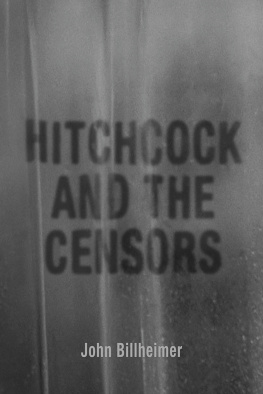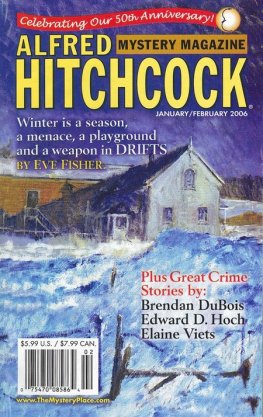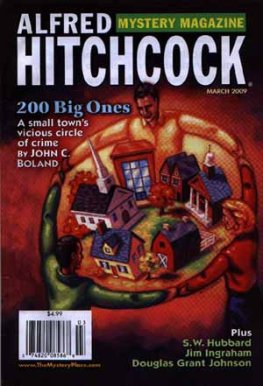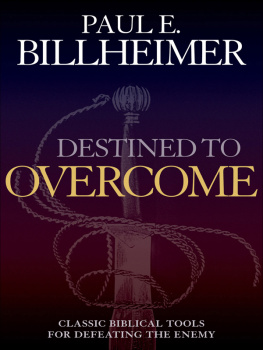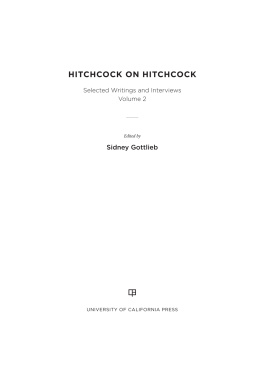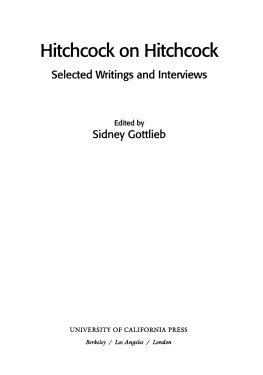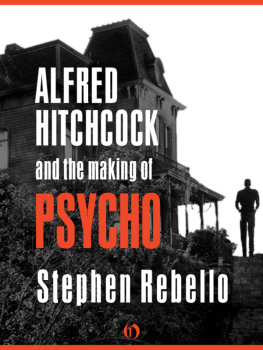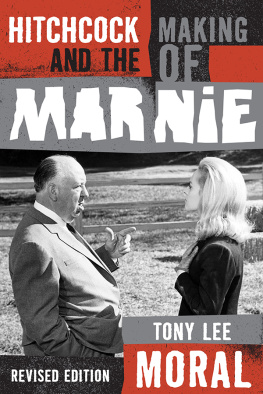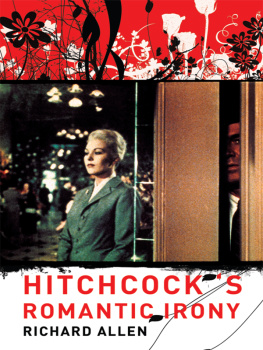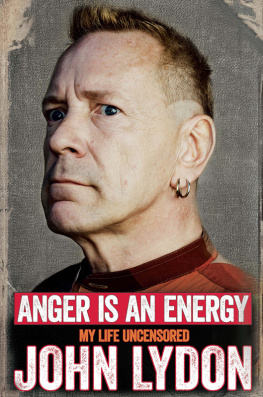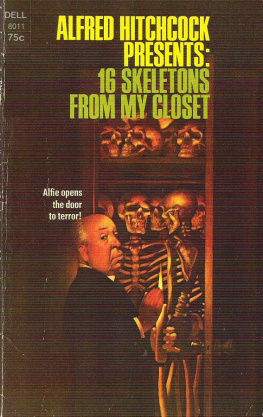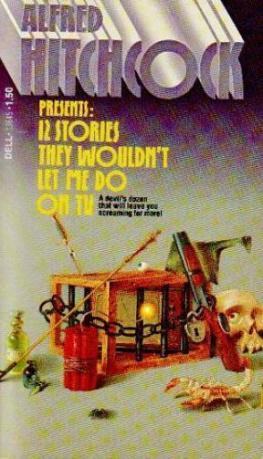Billheimer John - Hitchcock and the Censors
Here you can read online Billheimer John - Hitchcock and the Censors full text of the book (entire story) in english for free. Download pdf and epub, get meaning, cover and reviews about this ebook. year: 2019, publisher: University Press of Kentucky, genre: Romance novel. Description of the work, (preface) as well as reviews are available. Best literature library LitArk.com created for fans of good reading and offers a wide selection of genres:
Romance novel
Science fiction
Adventure
Detective
Science
History
Home and family
Prose
Art
Politics
Computer
Non-fiction
Religion
Business
Children
Humor
Choose a favorite category and find really read worthwhile books. Enjoy immersion in the world of imagination, feel the emotions of the characters or learn something new for yourself, make an fascinating discovery.
- Book:Hitchcock and the Censors
- Author:
- Publisher:University Press of Kentucky
- Genre:
- Year:2019
- Rating:4 / 5
- Favourites:Add to favourites
- Your mark:
- 80
- 1
- 2
- 3
- 4
- 5
Hitchcock and the Censors: summary, description and annotation
We offer to read an annotation, description, summary or preface (depends on what the author of the book "Hitchcock and the Censors" wrote himself). If you haven't found the necessary information about the book — write in the comments, we will try to find it.
Hitchcock and the Censors — read online for free the complete book (whole text) full work
Below is the text of the book, divided by pages. System saving the place of the last page read, allows you to conveniently read the book "Hitchcock and the Censors" online for free, without having to search again every time where you left off. Put a bookmark, and you can go to the page where you finished reading at any time.
Font size:
Interval:
Bookmark:

HITCHCOCK AND THE CENSORS
HITCHCOCK AND THE CENSORS
JOHN BILLHEIMER

Due to variations in the technical specifications of different electronic reading devices, some elements of this ebook may not appear as they do in the print edition. Readers are encouraged to experiment with user settings for optimum results.
Copyright 2019 by The University Press of Kentucky
Scholarly publisher for the Commonwealth,
serving Bellarmine University, Berea College, Centre
College of Kentucky, Eastern Kentucky University,
The Filson Historical Society, Georgetown College,
Kentucky Historical Society, Kentucky State University,
Morehead State University, Murray State University,
Northern Kentucky University, Transylvania University,
University of Kentucky, University of Louisville,
and Western Kentucky University.
All rights reserved.
Editorial and Sales Offices: The University Press of Kentucky
663 South Limestone Street, Lexington, Kentucky 40508-4008
www.kentuckypress.com
Unless otherwise noted, photographs are from the authors collection.
Library of Congress Cataloging-in-Publication Data
Names: Billheimer, John W., author.
Title: Hitchcock and the censors / John Billheimer.
Description: Lexington : The University Press of Kentucky, 2019. | Includes bibliographical references and index.
Identifiers: LCCN 2019000222| ISBN 9780813177427 (hardcover : alk. paper) | ISBN 9780813177410 (pdf) | ISBN 9780813177434 (epub)
Subjects: LCSH: Hitchcock, Alfred, 1899-1980Criticism and interpretation. | Motion picturesCensorshipGreat Britain. | Motion picturesCensorshipUnited States. | TelevisionCensorshipUnited States.
Classification: LCC PN1998.3.H58 B55 2019 | DDC 791.4302/33092dc23
This book is printed on acid-free paper meeting the requirements of the American National Standard for Permanence in Paper for Printed Library Materials.

Manufactured in the United States of America.
| Member of the Association |
For Wayne and Susan, my pride and joy
(or is it my joy and pride?)
Contents
Introduction
In the dining car of the Twentieth Century Limited, Eva Marie Saint raises her eyebrows and smiles provocatively at Cary Grant. Her lips form the words I never make love on an empty stomach. But on the soundtrack, the audience hears, I never discuss love on an empty stomach. This line from the movie North by Northwest is just one of hundreds of bits of dialogue Alfred Hitchcock sacrificed to the censors of the Motion Picture Production Code over the course of his career.
The Production Code shackled creativity in American movies for most of Alfred Hitchcocks productive years. The Code contained nearly four thousand words, with an initial sentence that promised, No picture shall be produced which will lower the moral standards of those who see it. It was adopted by motion picture producers in 1930 to ward off government intervention and convince religious groups alarmed by screen sex and violence that the industry was capable of policing itself. In the early years of the Code, there was virtually no self-policing and little changed on American screens. By 1934, however, fear of federal censorship and pressure from the Catholic Legion of Decency caused producers to turn the keys to the Production Code office over to Joseph I. Breen, a sanctimonious, anti-Semitic Irish Catholic who would demand strict adherence to the Code and ensure that no picture could be released in the United States without his offices Seal of Approval.
On average, Breen and the Production Code office requested 22.5 changes to each of Hitchcocks American films. These changes ranged from the mundane to the mind-boggling, covering a wide variety of topics, including dialogue (no profanity), settings (no scenes in bathrooms), costumes (no cleavage), characters (no loose women), plots (no unpunished evildoers), and relations between the sexes (no extramarital affairs). Because Code approval was required for US release, the requested changes, which rarely improved the finished films, required Hitchcocks full attention and at least as much cleverness and ingenuity as he put into the movies themselves. According to Hitchcock biographer Patrick McGilligan, the director bucked the Code with exceptional tenacity in the American phase of his career, pushing the boundaries of sex and violence in his films. And he usually did so deviously, rather than by direct confrontation, stalling, surrendering by degrees, swapping off one cherished transgression for another.1
Hitchcock gleefully layered many of his scripts with outlandish dialogue or plot points he knew to be objectionable so that they could be used as sacrificial lambs to appease censors and convince them to allow images that might otherwise have been cut. The director claimed that he actually enjoyed these negotiations, likening them to the thrill of competitive horse trading.2 In this give-and-take, Hitchcock was willing to surrender certain elements of his films while taking great pains to protect others. The first element to go was dialogue, followed, if necessary, by logic, plot, character, color, and the musical score. All of these would be sacrificed to protect the visual imagery that he viewed as the foundation of his movies. I like to have the whole film complete in my mind, he wrote in an early piece, Some Aspects of Direction. I like to have the whole story down, shot by shot, on paper before I ever enter the studio.3
Dialogue was much less important to Hitchcock than other elements of his films. I have strong feelings about the art of cinema, but I dont believe in dialogue, he told interviewers. I create suspense, and Im trying to play with the audience like a cat with a mouse.4 Many of Hitchcocks screenwriters were adept at creating racy dialogue, and the Production Codes reviews of his finished scripts were littered with requests that this line or that observation be omitted. These requests became fodder at the negotiating table. While Hitchcock might protect a few of the sharper quips, he was always willing to sacrifice large segments of dialogue, some of which may have been made deliberately objectionable so that they could be used as trading chips. Sometimes, as in the case of the North by Northwest byplay between Eva Marie Saint and Cary Grant, these sacrifices were evident on the screen.
Plot and logic were the next sacrifices Hitchcock was willing to make to preserve his precious imagery. Nothing in the world is as dull as logic, he told interviewers. Theres something more important than logic, and thats imagination. If we insist on always thinking in logical terms, we will never use our imagination.5 When an actress in To Catch a Thief asked Hitchcock who had thrown her film father over a balustrade into the sea, the director, with a typical disdain for plot details, told her, It doesnt matter.6Although critics sometimes complained about the lack of logic in certain Hitchcock films, audiences never seemed to mind. Hitchcocks thrillers were full of holes, Pauline Kael wrote, but you were having too good a time to worry about them.7
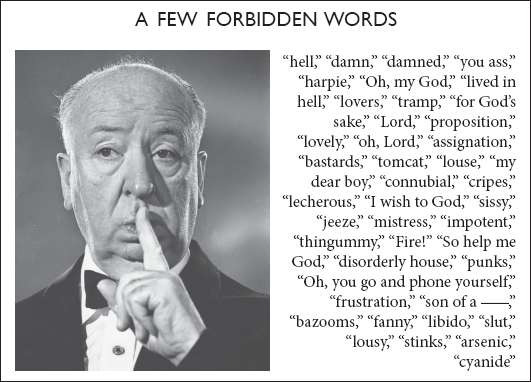
Font size:
Interval:
Bookmark:
Similar books «Hitchcock and the Censors»
Look at similar books to Hitchcock and the Censors. We have selected literature similar in name and meaning in the hope of providing readers with more options to find new, interesting, not yet read works.
Discussion, reviews of the book Hitchcock and the Censors and just readers' own opinions. Leave your comments, write what you think about the work, its meaning or the main characters. Specify what exactly you liked and what you didn't like, and why you think so.

